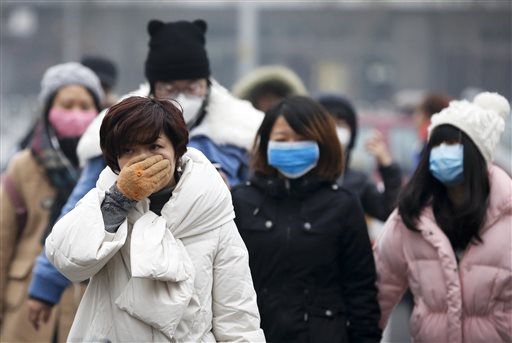Beijing red alert for smog prompts partial shutdown
Schools were closed, building work suspended and restrictions on cars were put in place in Beijing on Tuesday after the Chinese capital issued its first-ever “red alert” for smog.
According to the BBC, as of Tuesday 07:00 local time, the US Embassy in Beijing reported via an air pollution monitor that the city’s levels of PM 2.5, a highly poisonous chemical found in the air, were at a high with 291 micrograms.
Along with limiting cars to driving every other day depending on the last number of their license plate, a raft of other restrictions will seek to reduce the amount of dust and other particulate matter in the city of 22.5 million people. Heavy vehicles, including garbage trucks, are banned from the streets.
The warning was the first time Beijing has raised the “red alert” since emergency air pollution plans were introduced two years ago, although levels of pollution have been much higher in the past. It is expected to disperse Thursday afternoon as a cold front is set to arrive.
The stepped-up response came after city authorities were heavily criticized for issuing only an orange alert for last week’s worse pollution.
At 11am on Tuesday, the city’s air quality index, published by the municipal government, stood at 292 – classified as being a level of “heavy pollution”.
Rapid industrial growth and auto ownership over the past decade or more have led to high levels of pollution in major urban areas and Chinese researches have identified the problem as a major source of unrest.
A red alert has never been called in Beijing before this.
The air quality index is very closely linked to levels of PM2.5, although it also takes into account other pollutants.
The Beijing Education Commission issued a notice last night asking all middle, primary schools and kindergartens to suspend classes during the red alert period.
“He’s feeling really, really bad – actually… for a few days”, said father Robin Liu, who wore a mask to protect himself from the toxins in the air. Visibility shrank to less than half a football field and small-particle pollution soared to a record 40 times higher than an global safety standard in one northern Chinese city as the region entered its high-smog season.
As far as China is concerned, the move to issue the red alert is being seen as the government’s efforts to project Beijing’s seriousness about implementing president Xi Jinping’s promise at the Paris talks to take action against greenhouse gas (GHG) emissions.








